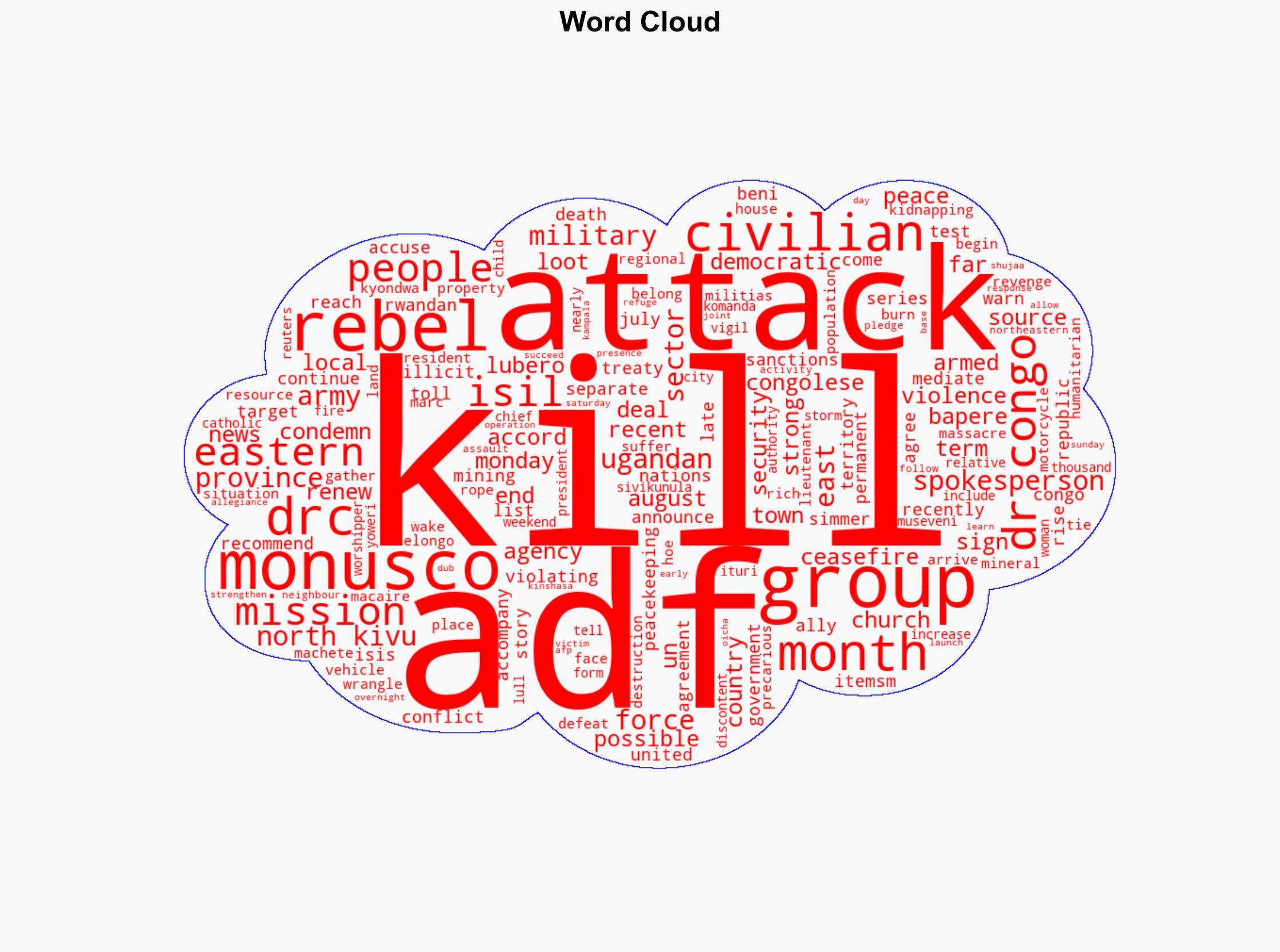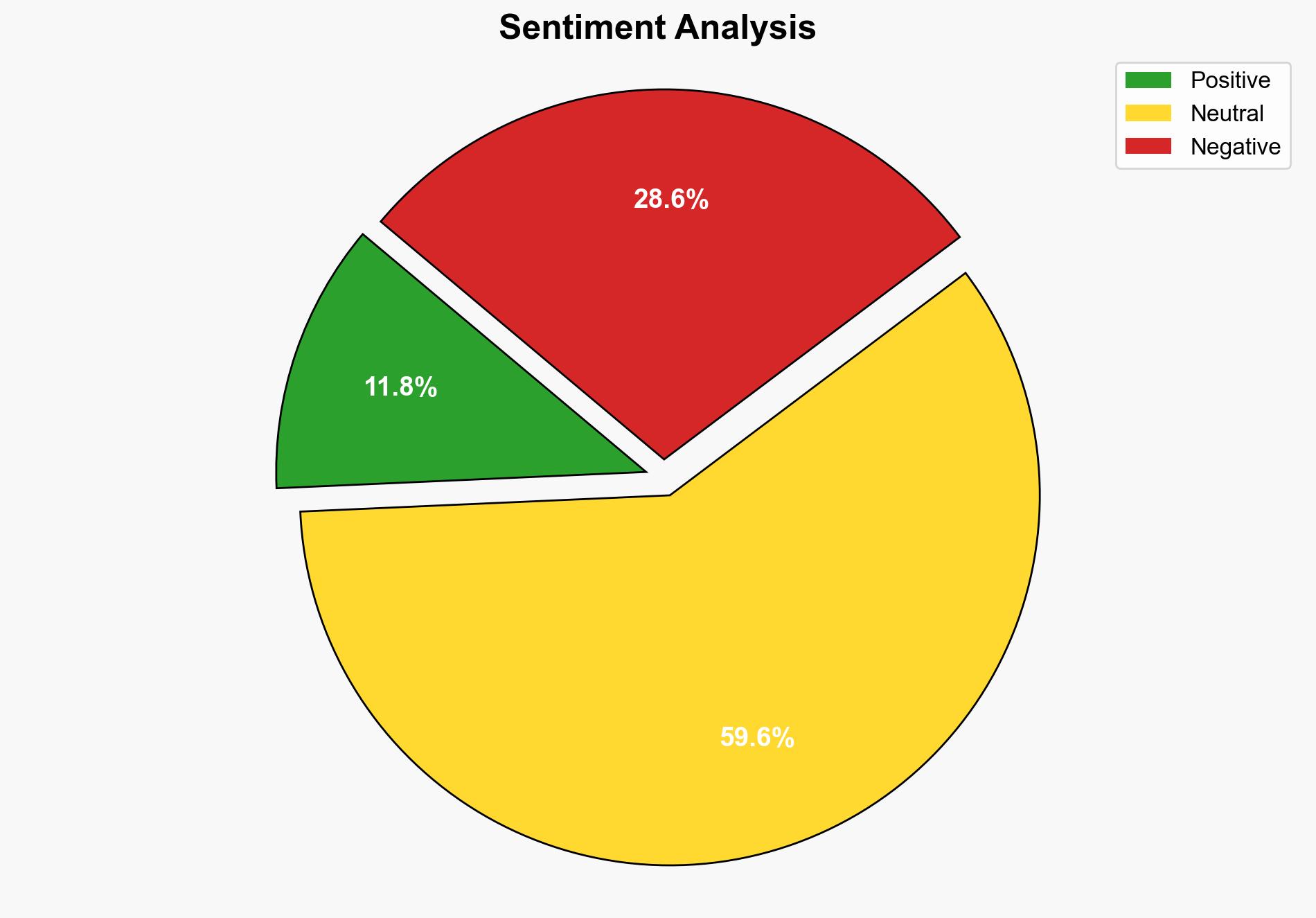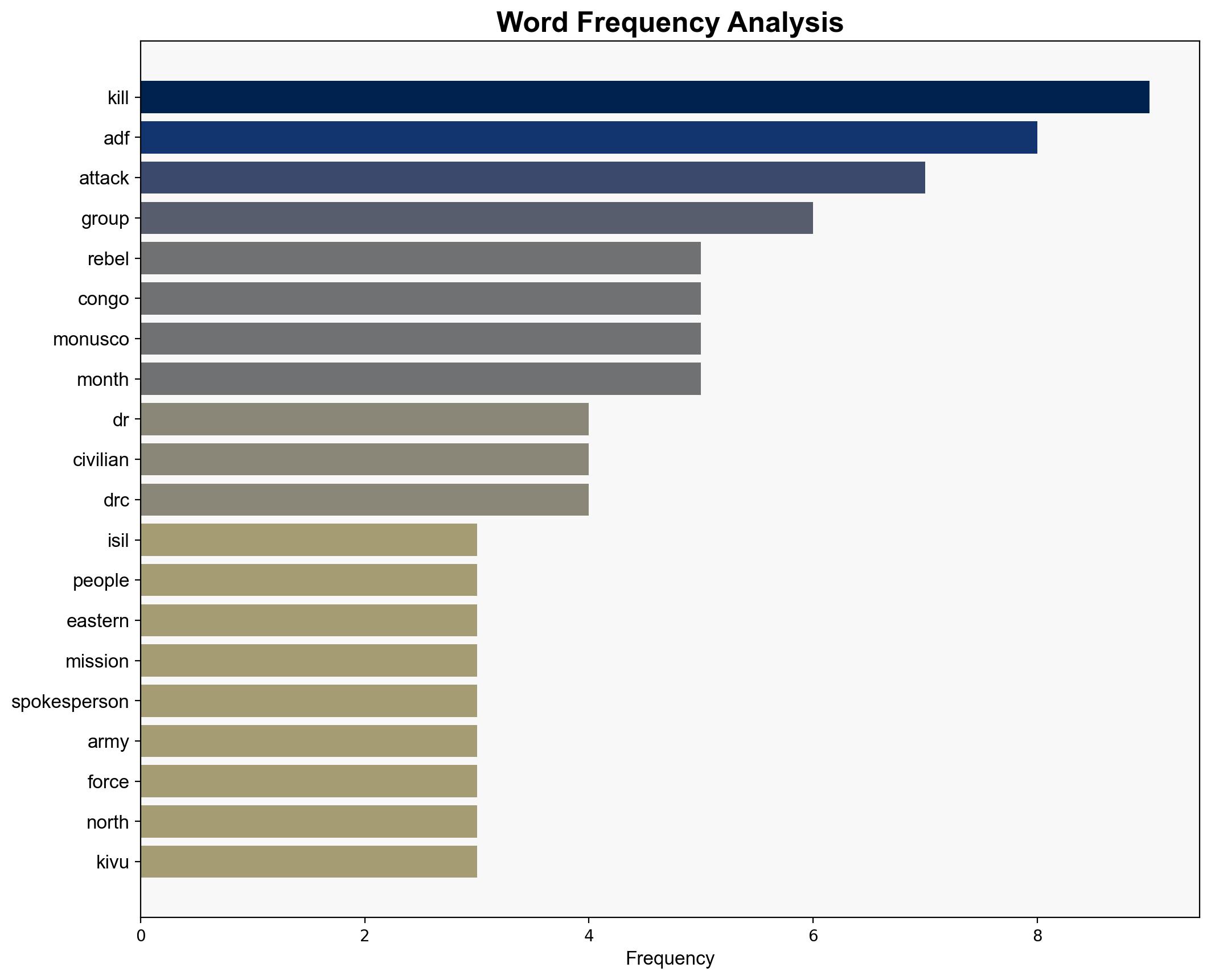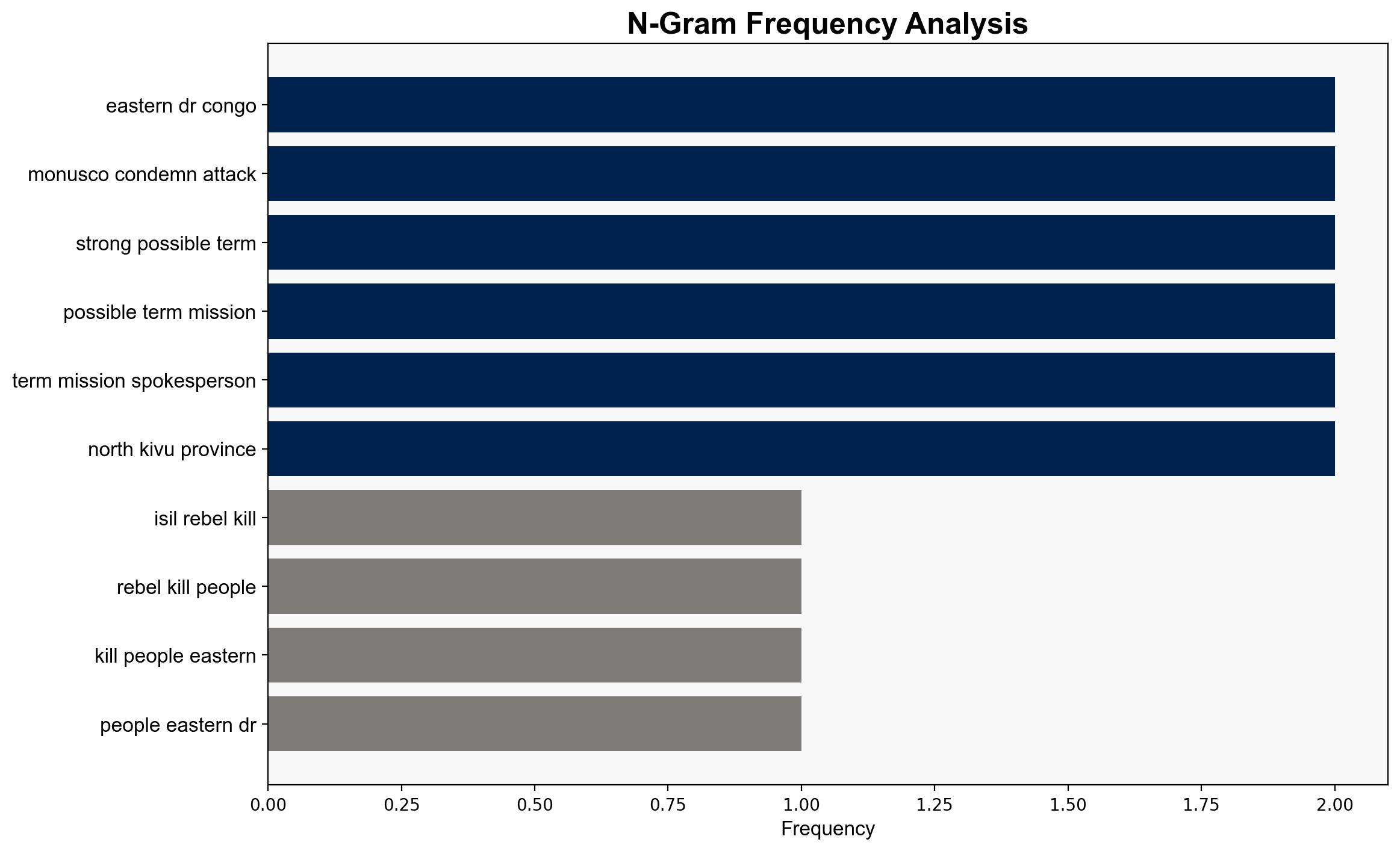ISIL-backed rebels killed at least 52 people in eastern DR Congo UN says – Al Jazeera English
Published on: 2025-08-18
Intelligence Report: ISIL-backed rebels killed at least 52 people in eastern DR Congo UN says – Al Jazeera English
1. BLUF (Bottom Line Up Front)
The most supported hypothesis is that the Allied Democratic Forces (ADF), an ISIL-backed group, is escalating its attacks in eastern DR Congo to destabilize the region and assert control over resource-rich areas. This hypothesis is supported by recent patterns of violence and the strategic importance of the region. Confidence level: Moderate. Recommended action: Strengthen regional security cooperation and intelligence sharing to disrupt ADF operations and protect civilian populations.
2. Competing Hypotheses
1. **Hypothesis A**: The ADF is intensifying attacks in eastern DR Congo as part of a broader ISIL strategy to expand influence in Central Africa, leveraging local grievances and exploiting the region’s instability.
2. **Hypothesis B**: The ADF’s recent attacks are primarily retaliatory, aimed at regaining control and influence after suffering military defeats from joint Congolese and Ugandan operations.
Using ACH 2.0, Hypothesis A is better supported due to the strategic alignment with ISIL’s global objectives and the pattern of increased violence following military setbacks, suggesting a coordinated effort rather than isolated retaliation.
3. Key Assumptions and Red Flags
– Assumption: The ADF’s allegiance to ISIL is operationally significant and not merely symbolic.
– Red Flag: Limited independent verification of ADF’s operational capabilities and ISIL’s direct involvement.
– Blind Spot: Potential underestimation of local political dynamics and their influence on ADF activities.
4. Implications and Strategic Risks
– The escalation could destabilize the entire Great Lakes region, impacting regional trade and security.
– Potential for increased refugee flows and humanitarian crises, straining local and international resources.
– Risk of further internationalization of the conflict, drawing in more external actors and complicating peace efforts.
5. Recommendations and Outlook
- Enhance intelligence-sharing mechanisms between regional governments and international partners to preempt ADF attacks.
- Support community resilience programs to reduce local support for ADF and mitigate recruitment efforts.
- Best-case scenario: Successful regional cooperation leads to a significant reduction in ADF activities.
- Worst-case scenario: ADF expands its operations, leading to widespread instability and international intervention.
- Most likely scenario: Continued sporadic violence with gradual containment through sustained military and diplomatic efforts.
6. Key Individuals and Entities
– Macaire Sivikunula, Chief of Lubero’s Bapere Sector
– Lieutenant Elongo Kyondwa Marc, Regional Congolese Army Spokesperson
7. Thematic Tags
national security threats, counter-terrorism, regional focus, resource conflict





